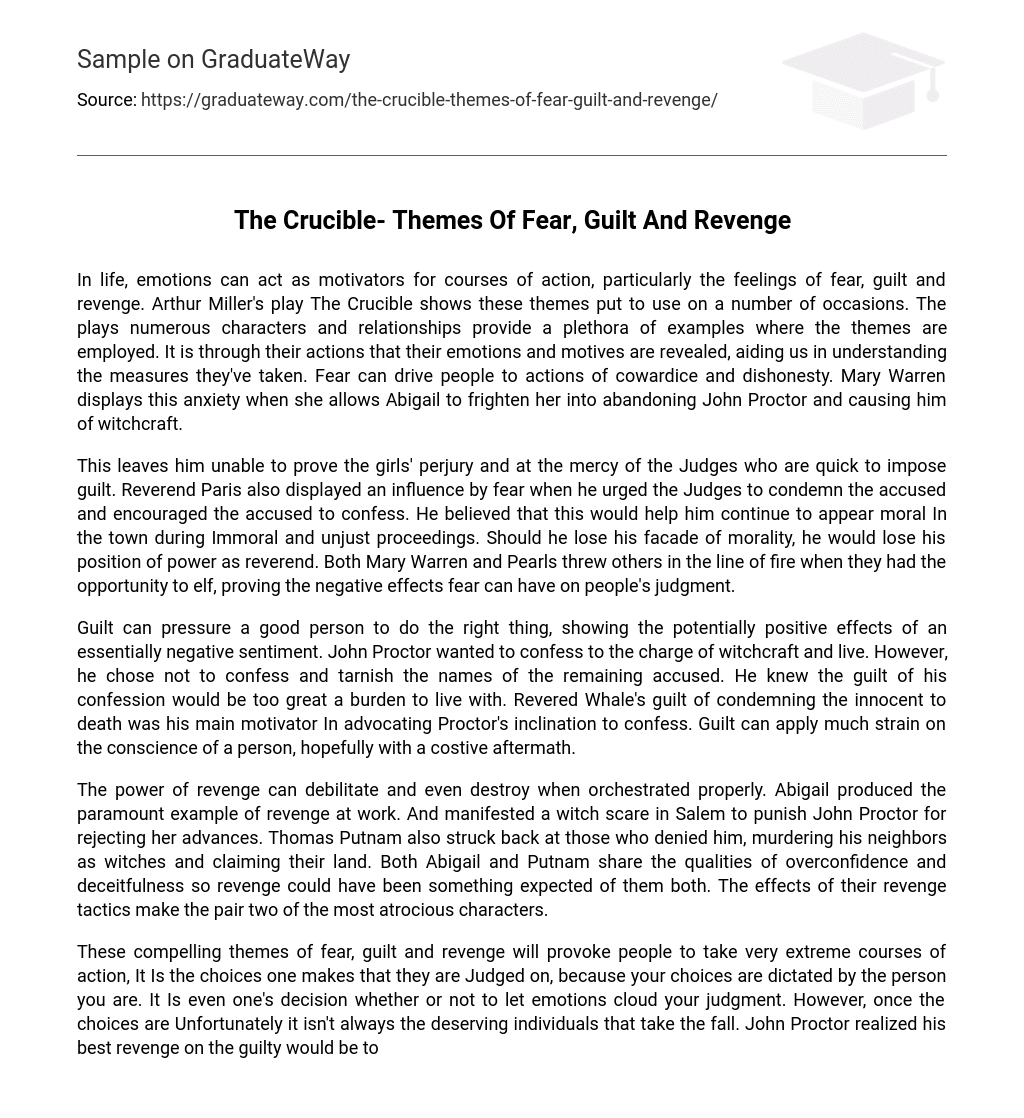Arthur Miller’s play, The Crucible, explores the compelling forces driving human behavior, including fear, guilt, and revenge. These powerful emotions are prominently portrayed through different characters and their interactions. Through a close analysis of their actions, we can attain a deeper comprehension of their motivations and feelings, enabling us to grasp the decisions they make. Fear exerts a notable influence in prompting individuals to act with cowardice and deceitfulness. This is exemplified by Mary Warren who yields to her anxieties and is manipulated by Abigail into betraying John Proctor through false accusations of witchcraft.
The inability to prove the girls’ perjury leaves him at the Judges’ mercy. Reverend Paris also demonstrates his fear-based influence by urging the Judges to condemn the accused and encouraging them to confess. He believes this will help him maintain his moral appearance in the town, despite the immoral and unjust proceedings. If he loses his facade of morality, he will lose his position of power as reverend. Mary Warren and Pearls both betray others when given the chance to save themselves, illustrating the detrimental impact of fear on judgment.
Despite being a negative emotion, guilt can have a positive impact on the actions of a good person. John Proctor contemplated admitting his involvement in witchcraft to save himself but ultimately decided against it to protect the reputation of others who were falsely accused. He understood that carrying the burden of guilt from confessing would be overwhelming. Reverend Hale believed that Proctor’s desire to confess stemmed from his guilt over condemning innocent individuals to death. Guilt can weigh heavily on one’s conscience and potentially result in positive outcomes.
The power of revenge has the ability to incapacitate and even annihilate when executed effectively. Abigail demonstrated the ultimate illustration of revenge in action, creating a hysteria of witches in Salem as a means of punishing John Proctor for spurning her advances. Similarly, Thomas Putnam also sought retribution against those who refused him, killing his neighbors and falsely accusing them of witchcraft to acquire their land. Both Abigail and Putnam possess the qualities of overconfidence and deceitfulness, making revenge a foreseeable course of action for both individuals. The consequences of their vengeful tactics establish them as two of the most odious characters.
These compelling themes of fear, guilt, and revenge can incite individuals to take drastic actions. It is the decisions people make that ultimately determine how they are evaluated, as these choices are influenced by their true character. Moreover, it is within one’s power to allow emotions to cloud their judgment or not. Regrettably, it isn’t always the deserving who bear the consequences of these choices.
John Proctor, recognizing this, concludes that his most effective retaliation against the guilty is to refuse to confess and instead instill a sense of fear in them. He aims to make them comprehend that innocent lives will not be disregarded or tolerated.





